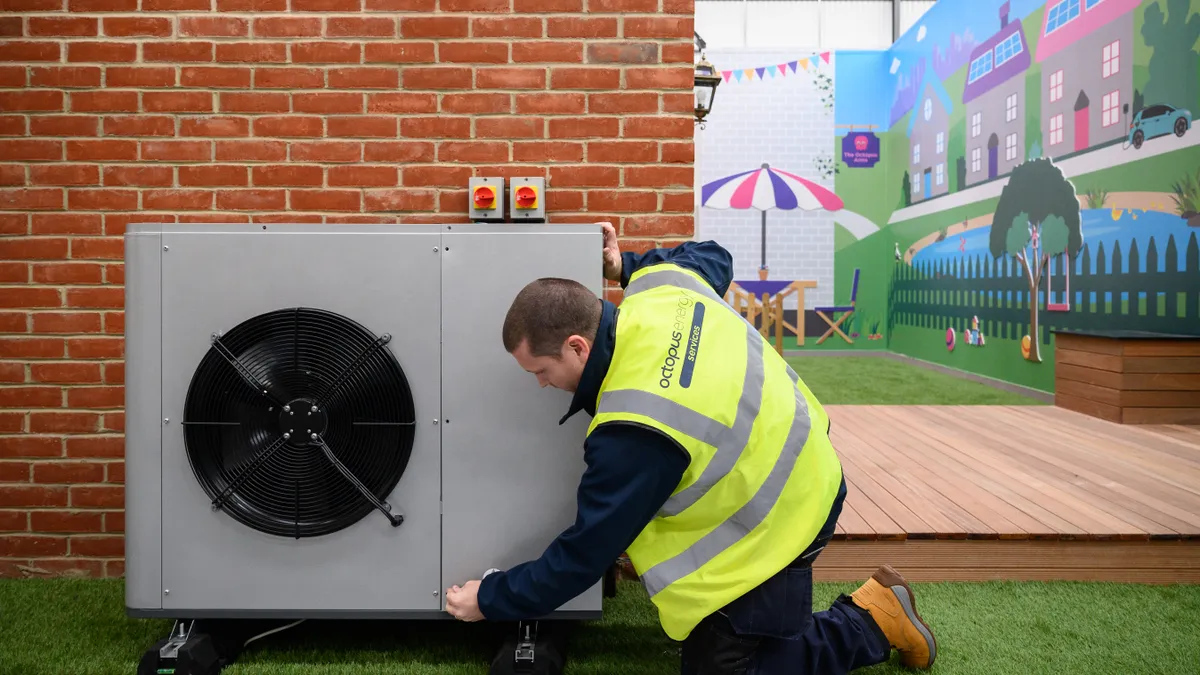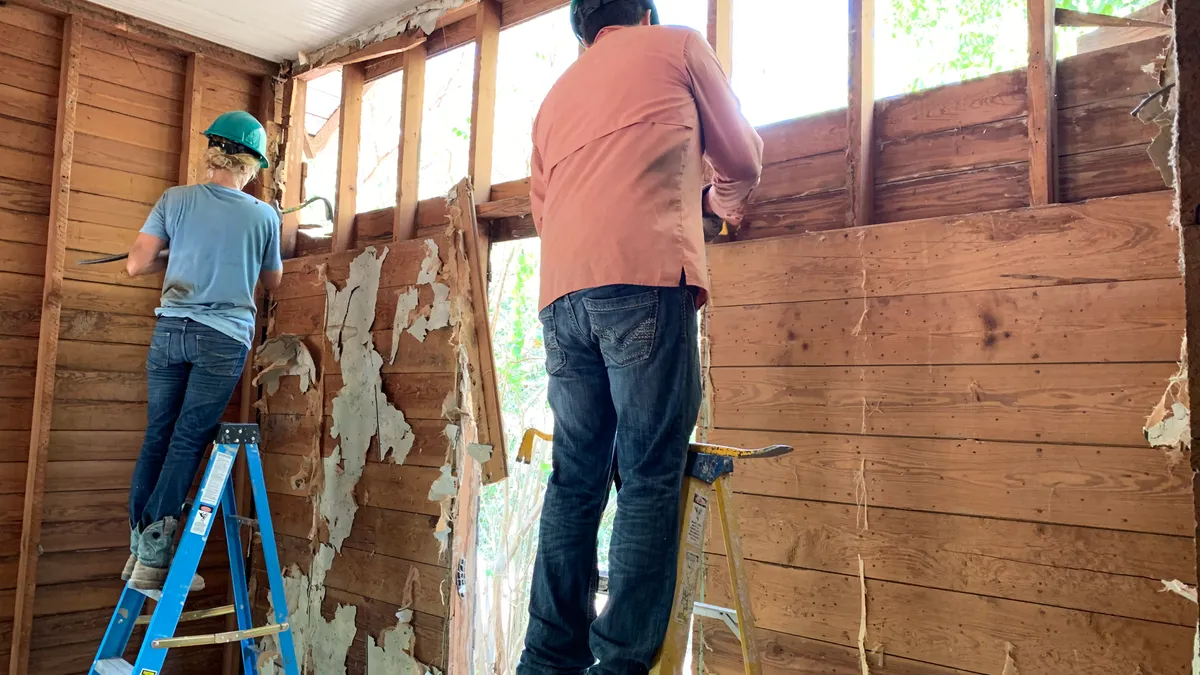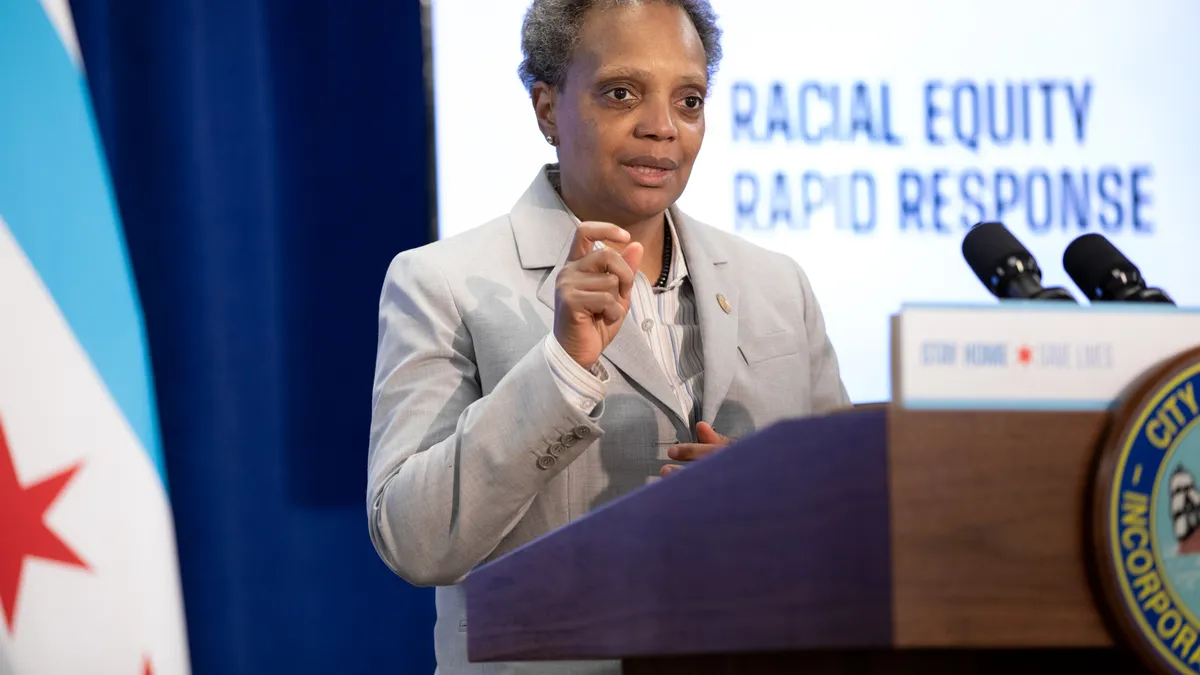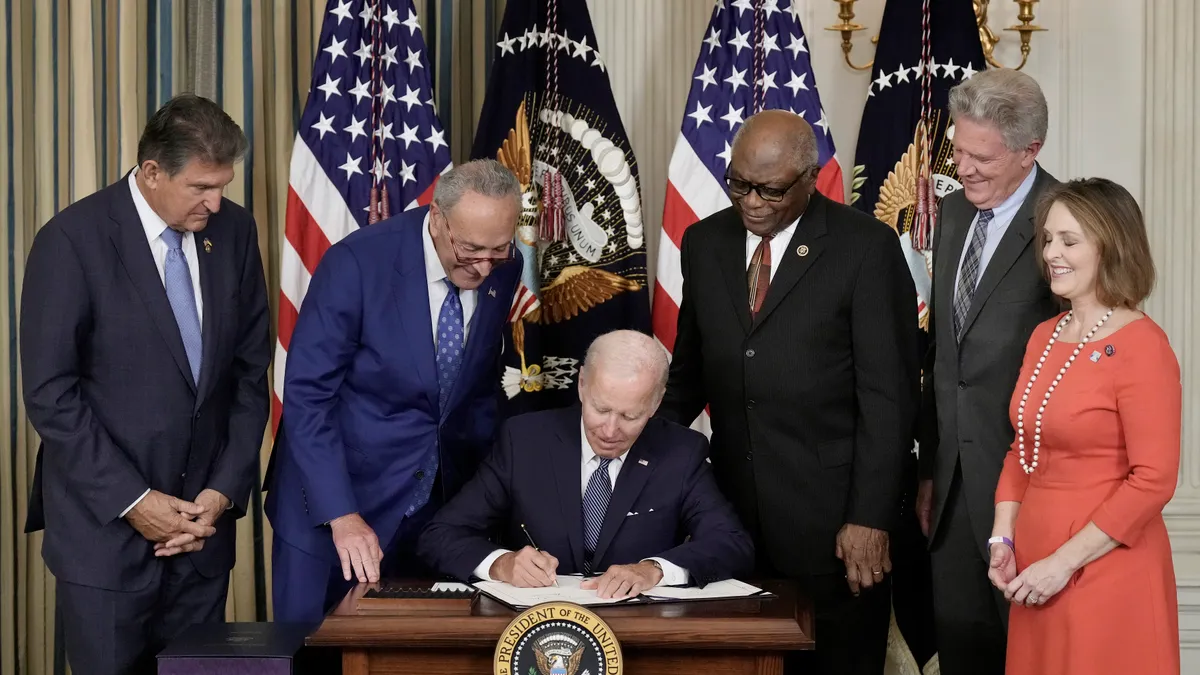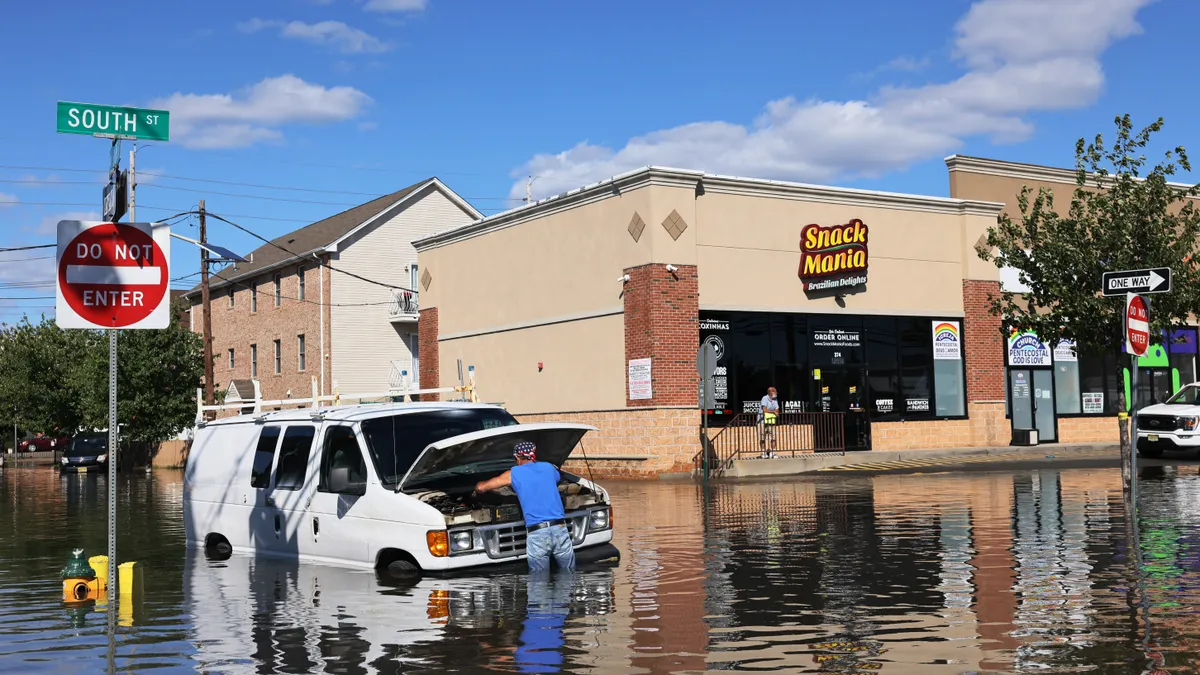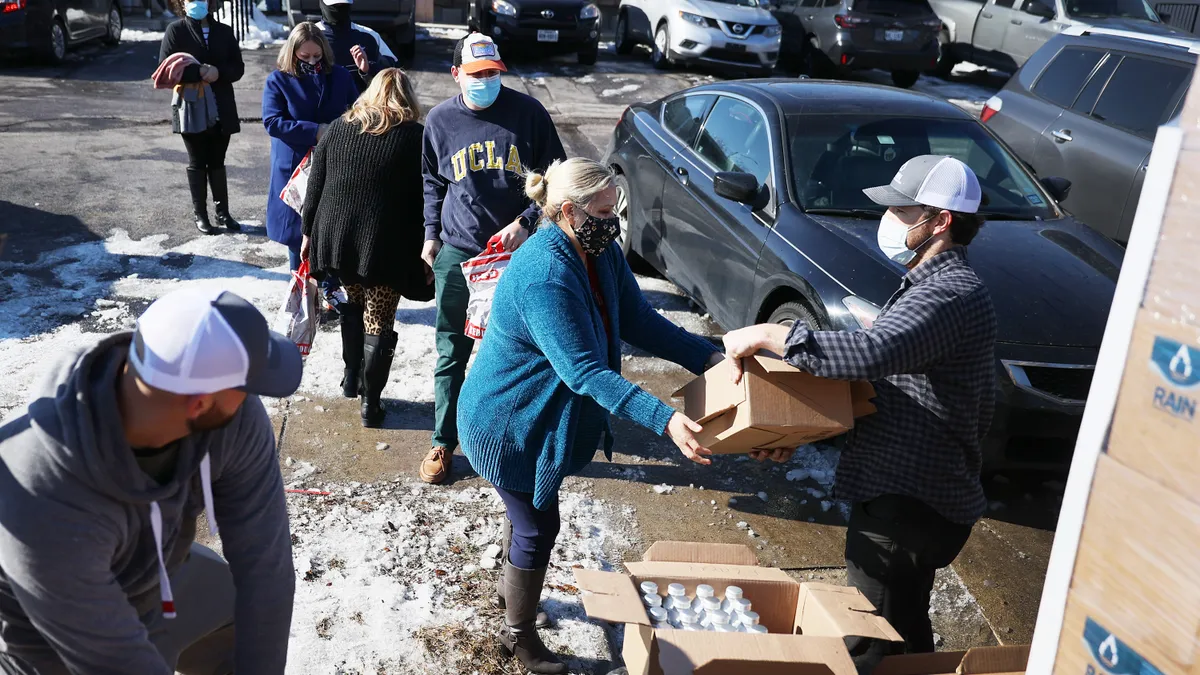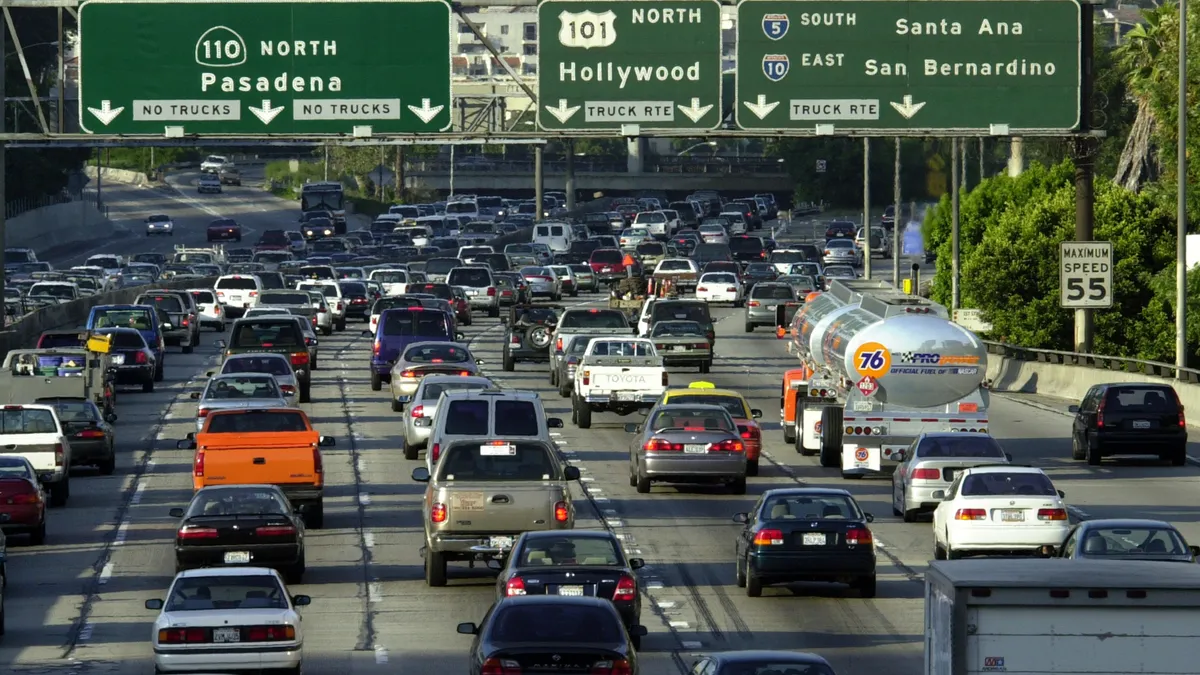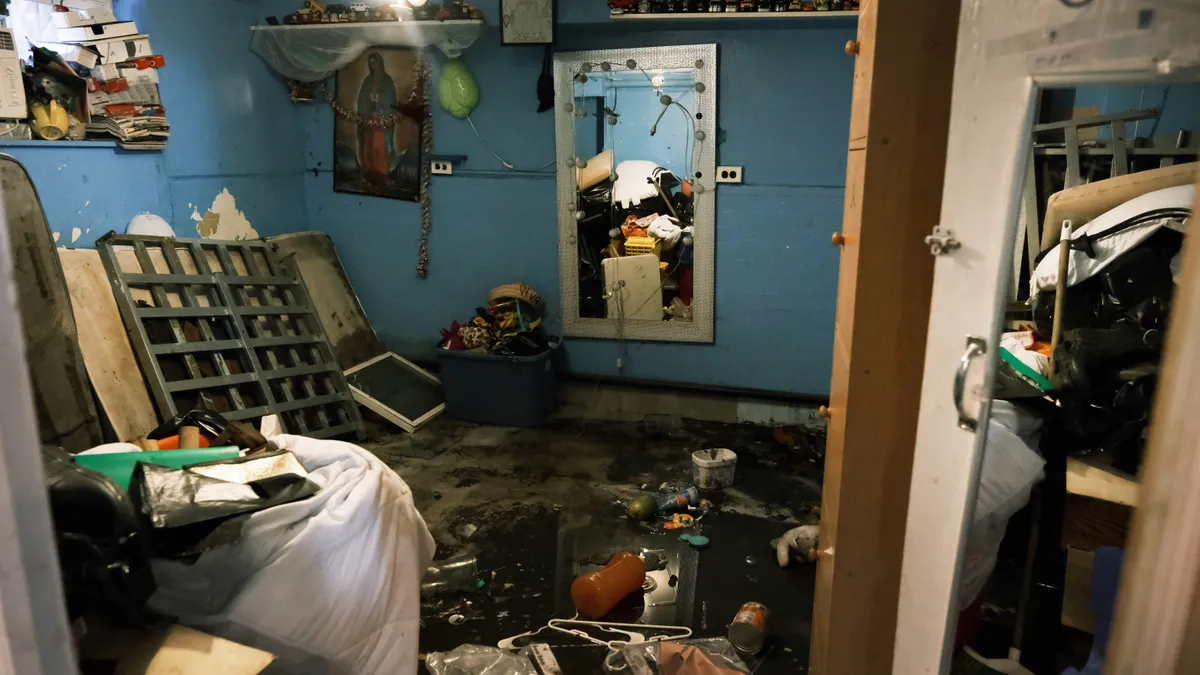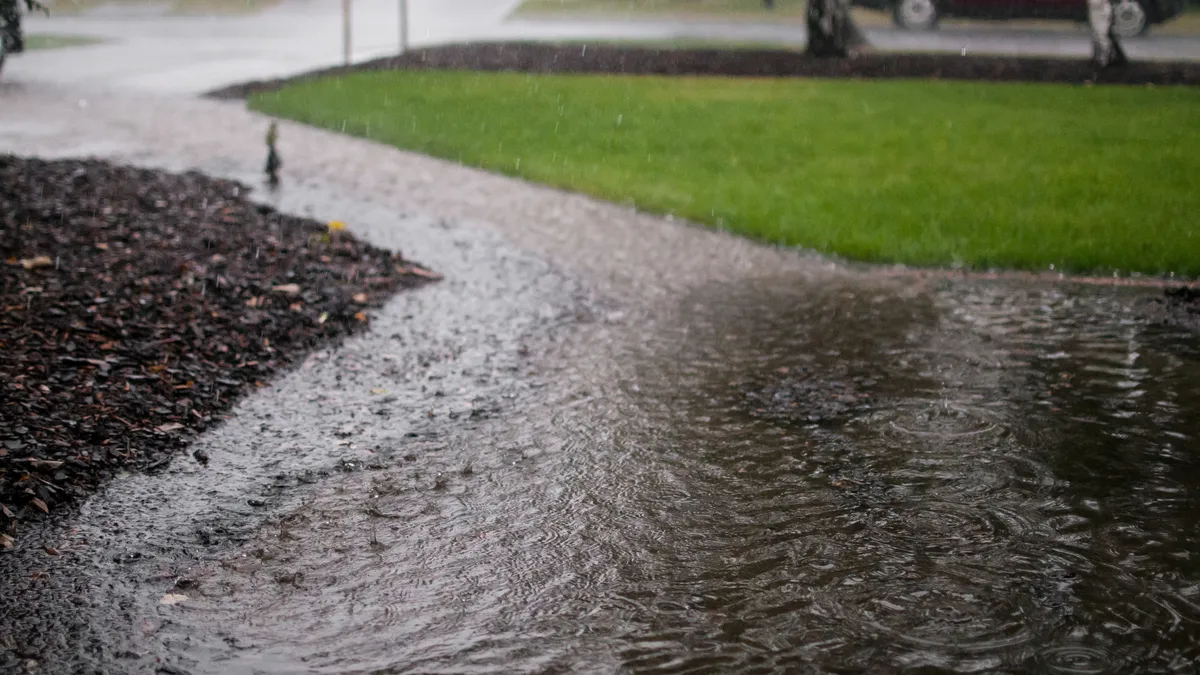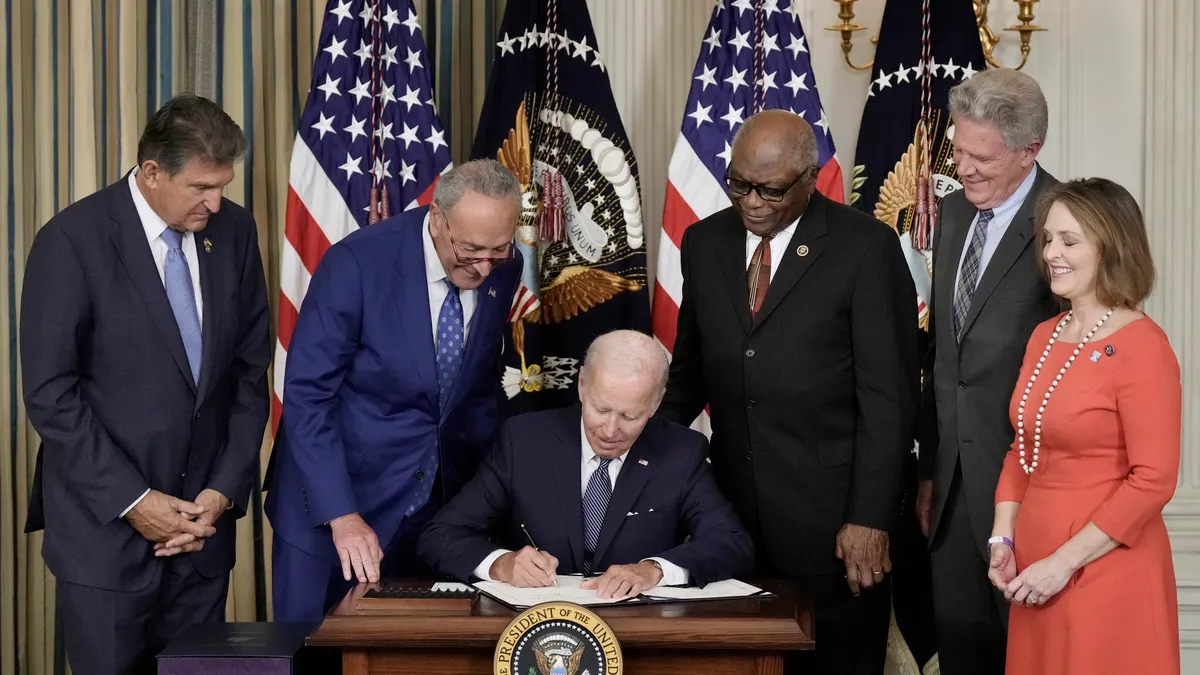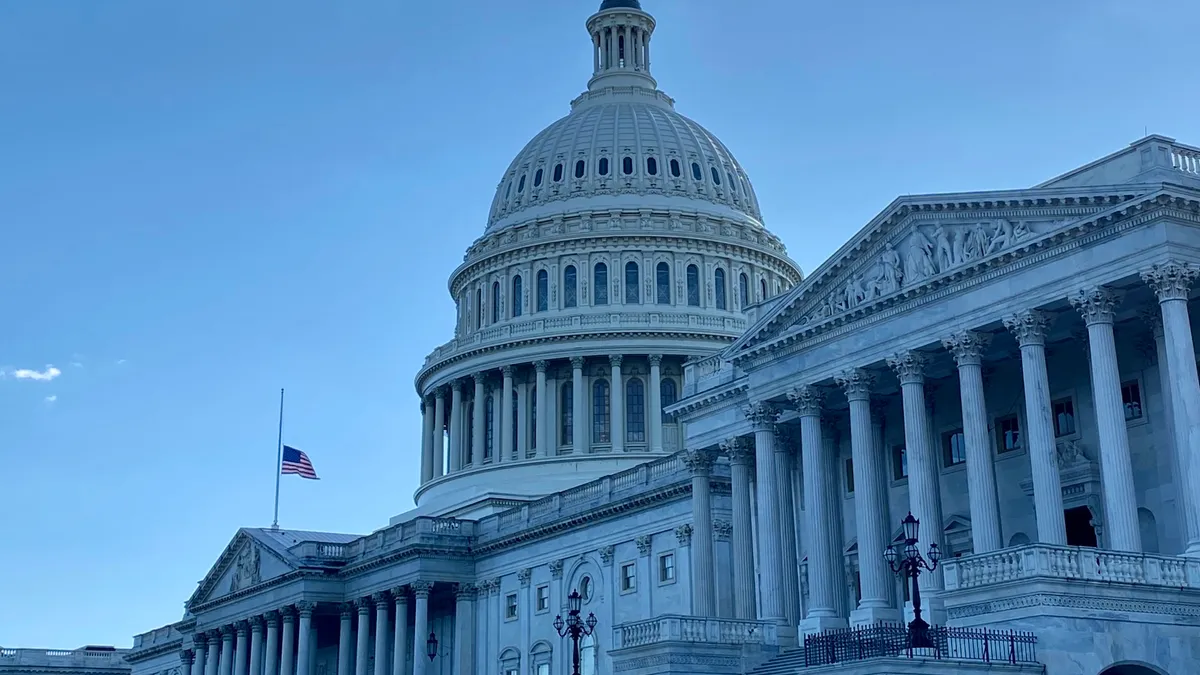Climate & Resilience: Page 34
-
BP and Hertz to build EV fast charging stations across the US
Ride-hailing drivers, Hertz car renters and the public will be able to charge up at hundreds of locations in the U.S.
By Dan Zukowski • Oct. 27, 2022 -
For equitable building electrification, philanthropy-backed fund puts communities in the driver’s seat
Who designs the energy transition? As cities work to reduce building emissions and spur clean alternatives, the creators of the Equitable Building Electrification Fund believe that decision-making power needs to shift.
By Maria Rachal • Oct. 26, 2022 -
 Explore the Trendline➔
Explore the Trendline➔
 Getty Images
Getty Images Trendline
TrendlineTop 5 stories from Smart Cities Dive
From worsening climate change to a shifting transportation landscape and the housing affordability crisis, cities have their work cut out for them.
By Smart Cities Dive staff -
Affordable housing, zero waste efforts could benefit from San Antonio deconstruction policy
One of the largest, fastest-growing U.S. cities is trying to use more of the materials it already has by requiring that some old buildings be deconstructed rather than demolished.
By Maria Rachal • Oct. 25, 2022 -
Aiming for equitable building decarbonization, Chicago gets long-awaited working group guidance
A green bank, a heat pump pilot and expanded energy benchmarking are among the strategies the group presented to address the 70% of greenhouse gas emissions that come from the Windy City's buildings.
By Katie Pyzyk • Oct. 19, 2022 -
Sponsored by Vaisala
Forecasting air quality in cities: Moving effortlessly from monitoring to management
Air pollution mitigation is a moving target for cities. Hyperlocal forecasting turns data into action.
Oct. 17, 2022 -
GAO calls on federal government to step up climate resilience efforts
A national strategic plan for climate change resilience would clarify agency priorities and align them with federal spending, the U.S. Government Accountability Office said in its report.
By Katie Pyzyk • Oct. 14, 2022 -
Long before weather disasters strike, communicating with vulnerable residents is key: report
Pre-planning and community partnerships prove essential when a hurricane, drought, wildfire or other calamity hits, according to insights recently shared from a National Science Foundation program.
By Charles Pekow • Oct. 12, 2022 -
Urban agriculture gets city funding in Chicago
Food insecurity spiked during the pandemic. Some communities, including those in Chicago, see urban agriculture as a long-term aid.
By Michael Brady • Oct. 4, 2022 -
Massachusetts, Washington confirm plans to end gas car sales by 2035, following California
State officials detailed their policy plans on Tuesday. Separately, GM announced a big rental EV order and weighed in on federal clean car standards.
By Dan Zukowski • Sept. 21, 2022 -
Column
Saving tomorrow today: Pursuing sustainability measures is a growing priority for agencies
Saving tomorrow today: Pursuing sustainability measures is a growing priority for agencies
By Tammy Rimes, MPA • Sept. 20, 2022 -
California could phase out gas heaters by 2030 to cut smog
The home and building appliances are “an underappreciated driver of unhealthy air quality in California cities,” non-profit advocates say in a report Tuesday, as state regulators consider only allowing zero-emissions alternatives.
By Maria Rachal • Sept. 20, 2022 -
Column
Climate survey by American City & County highlights environmental challenges
Editor's note: This article was originally published in American City & County, which has merged with Smart Cities Dive to bring you expanded coverage of city innovation and local government. For the latest in smart city news, explore Smart Cities Dive or sign up for our newsletter.As cities ...
By Andy Castillo • Sept. 19, 2022 -
Austin to launch resilience hub network using $3M in ARPA funds
Citing Texas’ experience with a deadly storm last winter and more climate threats to come, the city plans to stand up community sites with backup water, power and other year-round benefits.
By Maria Rachal • Sept. 16, 2022 -
Advanced mobility, mass timber projects chosen in $1B federal regional challenge
The American Rescue Plan’s $1 billion Build Back Better Regional Challenge will support joint efforts to use mass timber to accelerate affordable housing, spur American manufacturing for advanced mobility, and much more.
By Maria Rachal • Sept. 9, 2022 -
California poised to give $1,000 to residents for not owning a car
California could soon offer an incentive for lower-income households to forgo car ownership on top of an existing reward program for residents to retire their existing vehicles.
By Dan Zukowski • Sept. 6, 2022 -
Arup, startup are building smart city modeling tools to maximize energy efficiency
With Matidor, the partners seek to help civil engineers see the environmental impact and energy efficiency of what they’re developing in real time.
By Maria Rachal • Sept. 2, 2022 -
How New York City can make basement apartments safer: reports
A year after rainfall and subsequent flooding from Hurricane Ida led to 11 deaths of basement residents, a nonprofit and the city comptroller called for safety measures, protections and a pathway to legalize the dwellings.
By Maria Rachal • Sept. 1, 2022 -
Plugging $1B for alternative fuel vehicles, EPA head test-drives electric garbage truck
Inflation Reduction Act funding will be available “to replace dirty heavy-duty trucks with zero-emission models,” a recent video with EPA Administrator Michael Regan highlighted.
By Maria Rachal • Aug. 30, 2022 -
Jersey City mapping food rescue opportunities
The pandemic worsened food insecurity. Jersey City’s public works and health and human services departments, focused on reducing waste and boosting access, are working to better map and distribute food resources.
By Maria Rachal • Aug. 29, 2022 -
California sets road map to complete ban on gasoline-powered vehicle sales by 2035
Under the Clean Air Act, 17 states and D.C. can now follow this lead. Massachusetts established a trigger law this month to adopt the regs once California does. Automakers are worried about their ability to meet the timeline.
By Dan Zukowski • Aug. 26, 2022 -
Resilient Land Use Cohort to explore climate adaptation strategies
Urban Land Institute networks and community representatives in five regions will investigate how to best implement resilience hubs, conduct land swaps for homes in flood zones and scale green infrastructure, among other ideas.
By Maria Rachal • Aug. 25, 2022 -
NYC’s most critical infrastructure now and for the next 100 years
The New York Building Congress outlined which rail, road, bridge and other projects will grow the city's economy and help it adapt to climate change.
By Sebastian Obando • Aug. 24, 2022 -
How cities can prepare for the Inflation Reduction Act’s climate opportunities
With billions of dollars for energy efficiency upgrades, urban park enhancements and more signed into law this week, experts share tips on how cities can start preparing for funding opportunities now.
By Maria Rachal • Aug. 19, 2022 -
Boston aims to eliminate fossil fuels in new buildings
The city’s chance to set new building standards comes from the climate bill the Massachusetts governor signed last week, which extends that opportunity to 10 municipalities in the state.
By Maria Rachal • Aug. 17, 2022 -
Support for housing efficiency upgrades, urban parks, drought resilience poised to become law
With the House sending the Inflation Reduction Act to the president’s desk, some climate leaders say the onus will shift to local governments to execute on key initiatives.
By Maria Rachal • Aug. 15, 2022


